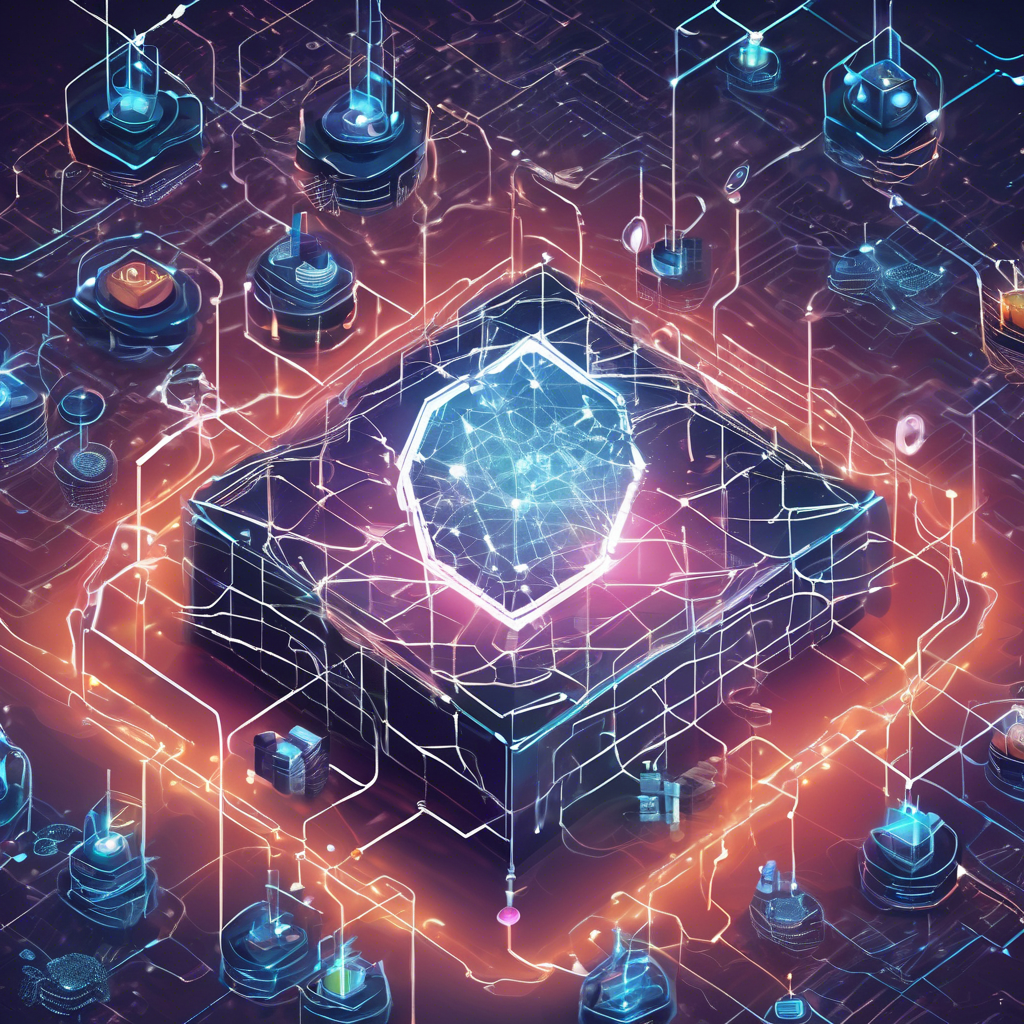Navigating the Future of Blockchain Security: AI and Quantum Computing Threats

Blockchain technology has been praised for its security in financial transactions, decentralized applications (dApps), and data integrity due to its cryptographic basis. However, as technologies develop, new threats emerge, particularly from Artificial Intelligence (AI) and Quantum Computing. The clash between AI attacks and quantum threats presents a significant challenge for blockchain security. While AI enhances hacking methods, quantum computing endangers traditional cryptographic algorithms vital for securing blockchain transactions. **AI-Powered Blockchain Attacks** AI, while advancing cybersecurity, equips hackers with sophisticated tools. Key AI-driven threats to blockchain include: - **Deep Learning Smart Contract Exploits**: AI models can quickly identify and exploit vulnerabilities in smart contracts. - **AI-Generated Phishing Attacks**: These use AI to craft convincing social engineering attacks targeting sensitive data. - **Automated 51% Attacks**: AI can pinpoint weak points in mining power to potentially control the majority needed for double-spending. - **AI-Driven Sybil and DDoS Attacks**: AI can automate the creation of fake nodes or launch DDoS attacks to disrupt the network. **Quantum Computing Threats** Quantum computing poses a profound, long-term risk by potentially breaking key cryptographic algorithms like RSA and ECC, as well as compromising hashing functions like SHA-256. The main quantum threats include: - **Shor’s Algorithm**: This could render traditional encryption ineffective by factoring large numbers. - **Grover’s Algorithm**: It could significantly speed up hash-breaking processes, threatening the integrity of blockchain transactions. - **Quantum Ledger Manipulation**: Quantum adversaries could reverse transactions, undermining blockchain immutability. **AI vs. Quantum Attacks: Fortifying Blockchain Security** Although AI introduces new vulnerabilities, it can also serve as a defensive tool against quantum threats, as follows: 1.
**AI-Driven Quantum Threat Detection**: AI can identify unusual blockchain activities indicative of quantum attacks in real-time. 2. **Smart Contract Auditing**: AI can help developers detect vulnerabilities pre-deployment and incorporate post-quantum security measures. 3. **Quantum-Resistant Cryptography**: Developers are creating algorithms (e. g. , lattice-based and multivariate polynomial cryptography) that are resilient to quantum decryption, with AI aiding in their efficient implementation. 4. **Enhanced Consensus Mechanisms**: AI could improve existing consensus models by detecting compromised nodes and adapting security protocols to counter quantum attacks. 5. **Hybrid Security Frameworks**: Research is ongoing to merge AI and quantum cryptography, creating a robust security solution for blockchain networks. **Preparing for the Future** As the landscape shifts with quantum advancements, several steps are crucial: - **Adoption of Post-Quantum Cryptography**: Blockchain networks should implement hybrid models that combine traditional and quantum-resistant algorithms. - **Integration of AI in Anomaly Detection**: AI tools should be deployed alongside blockchain analytics to identify quantum decryption attempts. - **Exploration of Advanced Cryptographic Techniques**: Methods like homomorphic encryption and secure multi-party computation can protect against AI-driven hacks. - **Development of Quantum-Secure Protocols**: New architectures must incorporate quantum-secure signatures and AI-driven self-healing protocols. The conflict between AI and Quantum attacks is becoming a reality, posing challenges but also opportunities for blockchain security enhancement. Transitioning to post-quantum cryptography and integrating AI analytics will be essential in safeguarding blockchain technology in a future dominated by quantum computing.
Brief news summary
Blockchain technology, renowned for enabling secure digital transactions and decentralized applications, is encountering new vulnerabilities due to threats from AI and quantum computing. While traditional cryptography has effectively addressed many cyber risks, the rise of AI-driven attacks—particularly those utilizing deep learning—complicates security measures. These developments threaten smart contracts and facilitate advanced phishing techniques. Concurrently, quantum computing poses a serious risk to conventional encryption methods like RSA and ECC, with algorithms such as Shor's and Grover's capable of undermining them. To confront these issues, a comprehensive strategic response is imperative. Leveraging AI for defensive tactics, including anomaly detection systems, can enhance the identification of quantum threats and assess smart contract weaknesses. Furthermore, developers are creating cryptographic algorithms designed to be resilient against quantum challenges, thereby strengthening blockchain security. Consequently, there is an urgent need for swift adoption of post-quantum cryptographic standards, enhanced AI-driven security measures, and proactive defense strategies. The convergence of AI and quantum computing is transforming the blockchain security landscape, emphasizing the necessity for adaptive approaches in an ever-changing cybersecurity context.
AI-powered Lead Generation in Social Media
and Search Engines
Let AI take control and automatically generate leads for you!

I'm your Content Manager, ready to handle your first test assignment
Learn how AI can help your business.
Let’s talk!
Hot news

Rise of AI Companions Among Single Virginians
New data from Match reveals that 18% of single Virginians have incorporated artificial intelligence (AI) into their romantic lives, a significant increase from 6% the previous year.

Ponzi VCs Are Strangling Blockchain
According to Romeo Kuok, a board member at BGX Ventures, most deals are structured to facilitate quick exits instead of generating long-term enterprise revenue.

Wimbledon's AI Judges Receive Mixed Reviews from …
The All England Club made a landmark change at Wimbledon 2025 by replacing traditional line judges with the AI-powered Hawk-Eye Electronic Line Calling (ELC) system.

JPMorgan's Tests Carbon Credit Tokenization On Th…
JPMorgan Chase & Co.

The ECB Approves Two Blockchain Projects To Moder…
The European Central Bank is embarking on a significant technological transformation.

Nvidia's Power Play
Nvidia, a leading technology company known for graphics processing and artificial intelligence, has announced a strategic partnership to launch Emerald AI, an innovative startup focused on sustainable energy management in data centers.

Senate Strikes AI Provision from GOP Bill After U…
On July 1, 2025, the U.S. Senate overwhelmingly voted 99 to 1 to remove a controversial provision from President Donald Trump's legislative package that sought a nationwide moratorium on state-level AI regulation.

 Auto-Filling SEO Website as a Gift
Auto-Filling SEO Website as a Gift








 Auto-Filling SEO Website as a Gift
Auto-Filling SEO Website as a Gift

